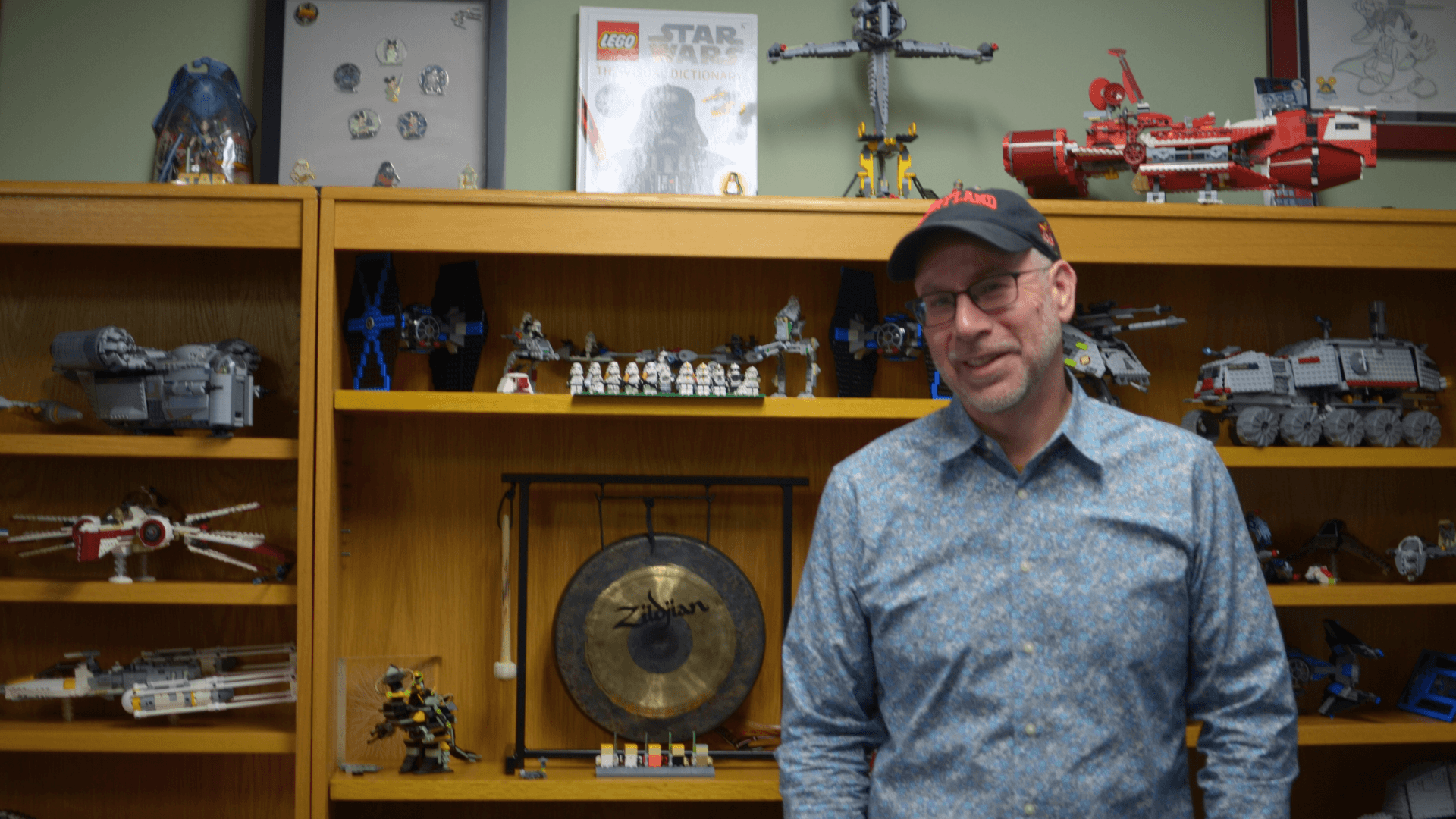Alumni Excellence Awards: Terp Research Award Winner Bryan Dickinson ’05
Alumni Excellence Awards: Terp Research Award Winner Bryan Dickinson ’05

By Andrew Faught
Synthetic biology is no longer the stuff of science fiction. Technology is allowing researchers to engineer molecules that prevent disease, better diagnose illness and create new therapies.
Helping to advance the field is Bryan Dickinson, a chemistry professor at the University of Chicago since 2014. The lab he established that year, the Dickinson Group, is an interdisciplinary research team that seeks to create “functional molecules” that could lead to biological discoveries and technologies.
Dickinson is using engineered molecules to rewire cell processes. Cells are critical to the immune system, as they maintain health and prevent disease.
“It wasn’t until the last decade or two that the tools have emerged to do work in a real way,” he says. “The speed at which you can have an idea and test it is so fast now.”
In his lab, Dickinson builds molecules, both large and small, through synthetic organic chemistry, protein engineering, and molecular evolution. The lab works at the interface of chemistry, biology and engineering to seek new discoveries that could lead to novel technologies.
His work has the potential for immediate and long-term benefits.
“In the short term, we’re interested in rare genetic diseases and therapies, including childhood disorders that once seemed intractable and impossible to treat,” Dickinson says. “We’re developing thorough methods to discover molecules in the lab and, coupled with advances in computational processes like machine learning, we’re going to have more ways to think about treating disease – from cancer to rare neurological disorders such as Alzheimer’s.
“Every year, our ability to understand molecules and engineer them is accelerating,” he adds. “We’re at the tip of the iceberg in harnessing biological systems to solve problems that society faces.”
Dickinson, who grew up in Severna Park, Md., says he enrolled at UMD because he liked the energy of a large campus. While he always enjoyed the sciences, particularly the beauty of evolution (“evolution just solves problems, and that can lead to some really weird and interesting outcomes, which I think is super cool”), Dickinson didn’t have any set plans for his academic work. That changed when did research with chemistry Professor David Fushman, which Dickinson says was “foundational” in steering his career path.
“I was interested in fundamental problems, and it was as an undergraduate working with Professor Fushman that I developed an interest in how and why molecules choose to interact with one another,” he says. “That was 20 years ago, and I thought it was the coolest problem. Still to this day, one of the grand challenges of biology is how dynamic interactions of biomolecules allow life to exist. A current focus of my group is developing evolution-based methods to control the interactions of biomolecules.”
Unlike other academic labs whose work is prescribed by concrete models and methods, the Dickinson Group uses “many different methods,” Dickinson says. “We’re driven by the questions or the problems we’re trying to address, and then we kind of throw whatever we need at them,” he adds. “That’s not necessarily the normal way an academic lab is structured. I’ve built a lab that is problem-focused rather than technique-focused.”
###
The Alumni Blog connects you with the latest at UMD. Check out articles on advancing your personal and professional goals, elevating your UMD pride, and celebrating Terp traditions, legacies and accomplishments.
Have an interesting story to tell about yourself or your friends from your days at UMD? Email our team at maycardi@umd.edu for a chance to be featured on the Alumni Association blog.
For even more content, follow the Alumni Association on Instagram, Facebook, LinkedIn and Twitter!

Do Good Spotlight: Bryan Quinn '01

Giving back, in TERPetuity

Nova Terps Board Spotlight - Sanjay Tolani


